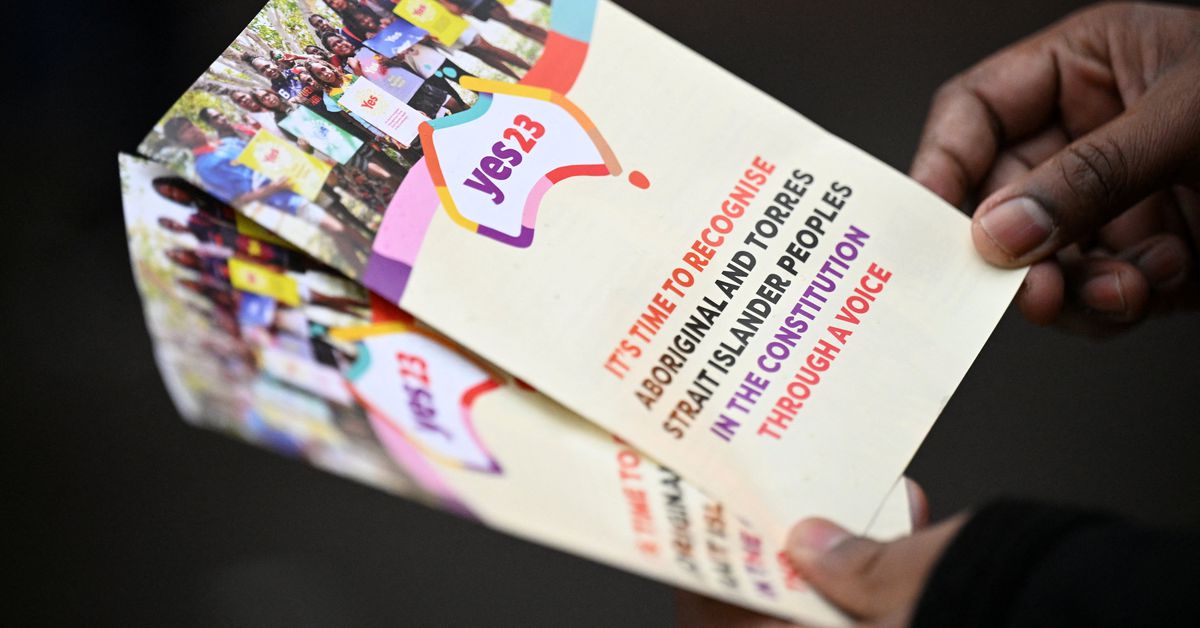Since Australian independence in 1901, only eight of the 44 proposals for constitutional change have been approved.
Support has slid to 43% in the latest survey, down from 46% in August with voters in New South Wales and Victoria, Australia’s most populous states, shifting against the proposal.
The ‘No’ vote is strongest in Queensland and Western Australia with 61% set to reject the Voice.
The referendum debate has divided opinions with supporters arguing the Voice will bring progress for the Aboriginal community, recognise the 65,000 year-old culture and “unite the nation”. Opponents say it would be divisive and hand excessive powers to the body, while others have described it as tokenism and toothless.
Making up about 3.2% of Australia’s near 26 million population, the Aboriginal people were marginalised by British colonial rulers and are not mentioned in the 122-year-old constitution.



It’s been bungled pretty badly by the yes side, when you can’t actually say exactly what you want to change in our constitution it’s not a great sign of a decent change. If they could say exactly what they wanted to change (assuming it was reasonable) and Labor explained exactly what policy they wanted to back it up with I think they’d convince a lot of conservative Australians to vote yes as well. As it stands it isn’t likely to get through, I haven’t talked to an indigenous person who is going to vote yes for it yet either.
I also find it a bit ironic that Tasmania, the state that practically wiped out it’s indigenous population that they’re most in support of it.
I agree that it may have been bungled, but I think that some of what you said isn’t quite right.
The precise text of the constitutional amendment is already set forth. You can read it online. They put it in a physical booklet which was sent to every household in the country. You’re right that the messaging was far from perfect, especially near the start, but saying that the “yes” side can’t state what they want to change is a bit disingenuous.
Why I think it may have been bungled is that it’s the sort of change that needed to be made from a position of political strength, and I’m not sure that Labor were quite there. The “no” side was always going to have an advantage in that it’s usually easier to maintain the status quo than it is to change something.
This means that the “yes” proponents have to do a lot more work to argue their case, and when combined with the big problems that Australia is facing (cost of living, housing affordability, etc) I think a lot of folks who would be “in the middle” on the issue are understandably a bit irritated that the government can appear to be putting more work into this than those other issues.